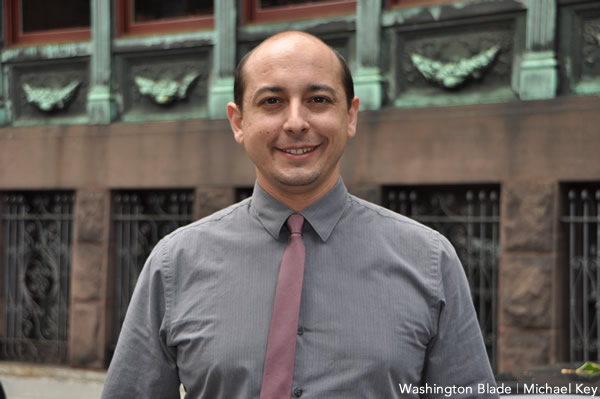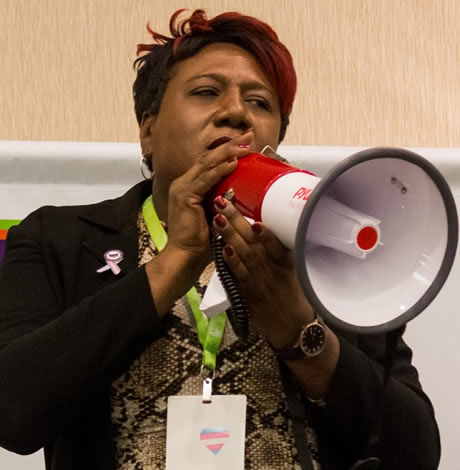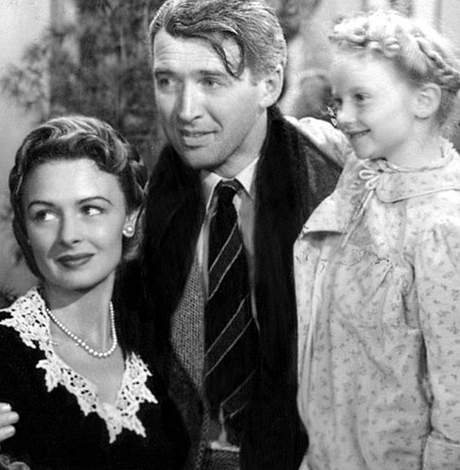Arts & Entertainment
Queery: David Perez
The GLBT Latino History Project president answers 20 gay questions
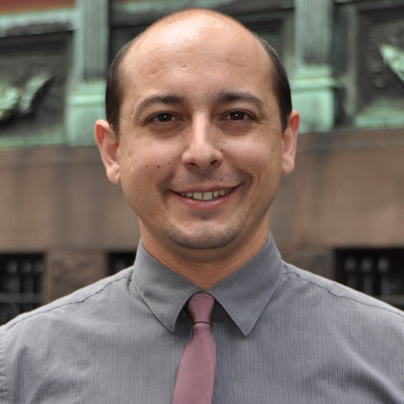
Though David Perez is a few generations removed from the group that came to the U.S. — his great-grandparents on his father’s side immigrated to the U.S. from Mexico — he identifies strongly with his Latino roots and spends his career and volunteer hours working on community advocacy.
By day, he’s director of development at the League of United Latin American Citizens (LULAC) and last May he became president of the D.C.-based Latino GLBT History Project, which is planning an expanded edition of Latino Pride this year. Festivities kick off Sunday and run over four (non-consecutive) days. More details are on page 29 or at latinoglbthistory.org.
Perez, 28, says it’s important for Latino gays to have their own forum in which to gather.
“A lot of the issues are the same, but there are additional issues as well,” he says. “Some things like access to health care, immigration reform, there are some things that affect out community more so while we like to talk about the broad LGBT agenda too, there are Latino-specific issues that are different.”
Perez says last year’s event felt a bit hectic with serious discussion-type events and a dance party all crammed into one day. This year, organizers have spread things out and added elements, such as a church service on June 3.
“We’re really excited about it,” he says. “We’ve gotten a lot of feedback of people who have an interest in seeing Latino Pride grow.”
Perez grew up in Vista., Calif., near San Diego and went to a conservative Christian college near Los Angeles. He came to Washington in 2005 for an internship and went to graduate school at Georgetown University, then stayed. He joined LULAC in 2007. He and boyfriend Gary James have been together 11 months.
Perez lives in Dupont Circle and enjoys volunteering, recreational sports, watching TV and spending time with friends in his free time. (Blade photo by Michael Key)
How long have you been out and who was the hardest person to tell?
I came out in August of 2006 to my friends during my second year of graduate school in D.C. That was fairly simple with a lot of progressive friends. The next time I saw my parents was December 25, 2006 and I told my Mom, Dad, sister and brother because they are very close to me and I wanted to share my life with them. They have been great to me and have treated me no differently than before. The hardest folks to tell were my friends from my conservative evangelical university. However, my close circle of friends there were really great and we are still friends.
Who’s your LGBT hero?
There are so many influential folks in my life. One fellow gay Latino I look up to is Russell Roybal at the National Gay and Lesbian Task Force. He has been involved in LGBT advocacy for many years and I admire is commitment to intersectional community organization to ensure LGBT advocacy includes mobilizing communities around racial and social justice issues as well. I witnessed this first hand at Creating Change this year in Baltimore.
What’s Washington’s best nightspot, past or present?
Rumba Latina at Cobalt is my favorite monthly party. The promoter Johnny Vasquez is hosting a special Latino dance party to raise funds for Latino Pride at Cobalt this Sunday at 10 p.m. Please join us!
Describe your dream wedding.
For my dream wedding, my husband and I would be surrounded by all our friends and families. I am sure it would be a decent size as I would want to invite all my tías and tíos (aunts and uncles). Definitely at a beautiful Episcopal Church.
What non-LGBT issue are you most passionate about?
Latino civil rights in the US. I spend my day-job fundraising for community and advocacy programs for the League of United Latino American Citizens. This is my passion. Fixing our broken immigration reform is a must! It should be LGBT inclusive compressive immigration reform. It’s hard to say if it’s just an LGBT or Latino issue. We need to be building coalitions to work together and support each other’s work.
What historical outcome would you change?
The way history has been written. So many amazing LGBTQ Latinas and Latinos have been left out of the history books. For example, Sylvia Rivera, a Latina Transgender activist, was at the front lines of the Stonewall riots. Latino involvement in LGBT advocacy is not a new thing. We have always been there. The purpose of the Latino GLBT History Project is to collect and preserve those stories and educate the public about the significant contributions of LBGT Latinos to the movement and society in general.
What’s been the most memorable pop culture moment of your lifetime?
Ricky Martin coming out. Though a long time coming, this is a very powerful statement for such a national and international figure to come out, especially for Latinos.
On what do you insist?
Doing your best to love your neighbor as yourself. It’s not always easy, but I feel we should treat all human beings with love and respect even if we disagree.
What was your last Facebook post or Tweet?
DC Latino Pride… Four days of Celebration: May 20th Royal Coronation at Cobalt, May 30th Panel Discussion & Community Resource Fair Human Rights Campaign, June 3rd Ecumenical Service St. Thomas’ Parish & Thursday, June 7th Official Latino Pride Dance Party at Town Danceboutique. Join the fun! www.LatinoGLBTHistory.org
If your life were a book, what would the title be?
“The Little Engine That Could.” I have so many mentors who have inspired me to achieve goals that I never even knew existed, like getting a graduate degree! I try to pass on the love and inspire others to dream big as well.
If science discovered a way to change sexual orientation, what would you do?
Nada (nothing). I love being gay.
What do you believe in beyond the physical world?
I believe in God who loves us all. I worship with my faith community regularly at St. Thomas’ Episcopal Parish Dupont Circle.
What’s your advice for LGBT movement leaders?
Build coalitions and work together. Commit yourself to diversity and inclusiveness. It might take a lot of work, but will be stronger partnerships for the long-term goals of the movement.
What would you walk across hot coals for?
My man, Gary
What LGBT stereotype annoys you most?
Assuming we always have to be the ones at the office to plan the party. Though I do love to plan parties.
What’s your favorite LGBT movie?
“The Broken Hearts Club.” I love softball and it’s an overall great movie.
What’s the most overrated social custom?
On Facebook, adding everyone who requests to be your “friend” even if you don’t know them.
What trophy or prize do you most covet?
I was really touched when the LULAC Youth gave me a medal after helping them paint murals in Latino neighborhoods of Chicago and north of Columbia Heights. It was totally unexpected and a project totally out of my normal duties. It was touching to see how much they enjoyed it.
What do you wish you’d known at 18?
College is expensive. Save up early!
Why Washington?
I first came to Washington, D.C. for an internship with my congressman. I loved politics and the West Wing. I came back for graduate school at Georgetown University. Stayed here working ever since. It is where I came out and is my current home.
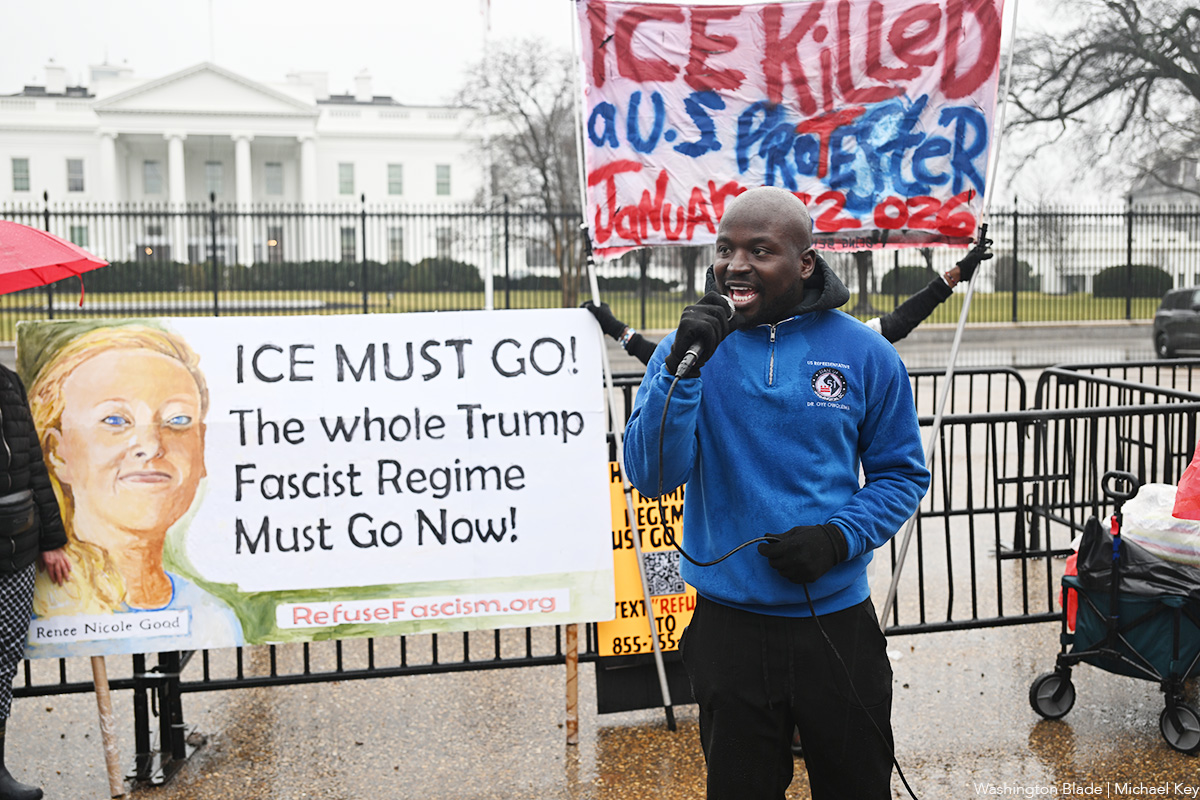
A protest was held outside of the White House on Saturday following the killing of Renee Nicole Good by a U.S. Immigration and Customs Enforcement agent in Minneapolis. Across the Potomac, picketers held signs calling for “Justice for Renee” in Tysons, Va.
Demonstrations were held in cities and towns across the country, according to multiple reports. A march was held yesterday in Washington, D.C., as the Blade reported. Further demonstrations are planned for tomorrow.
(Washington Blade photos by Michael Key)
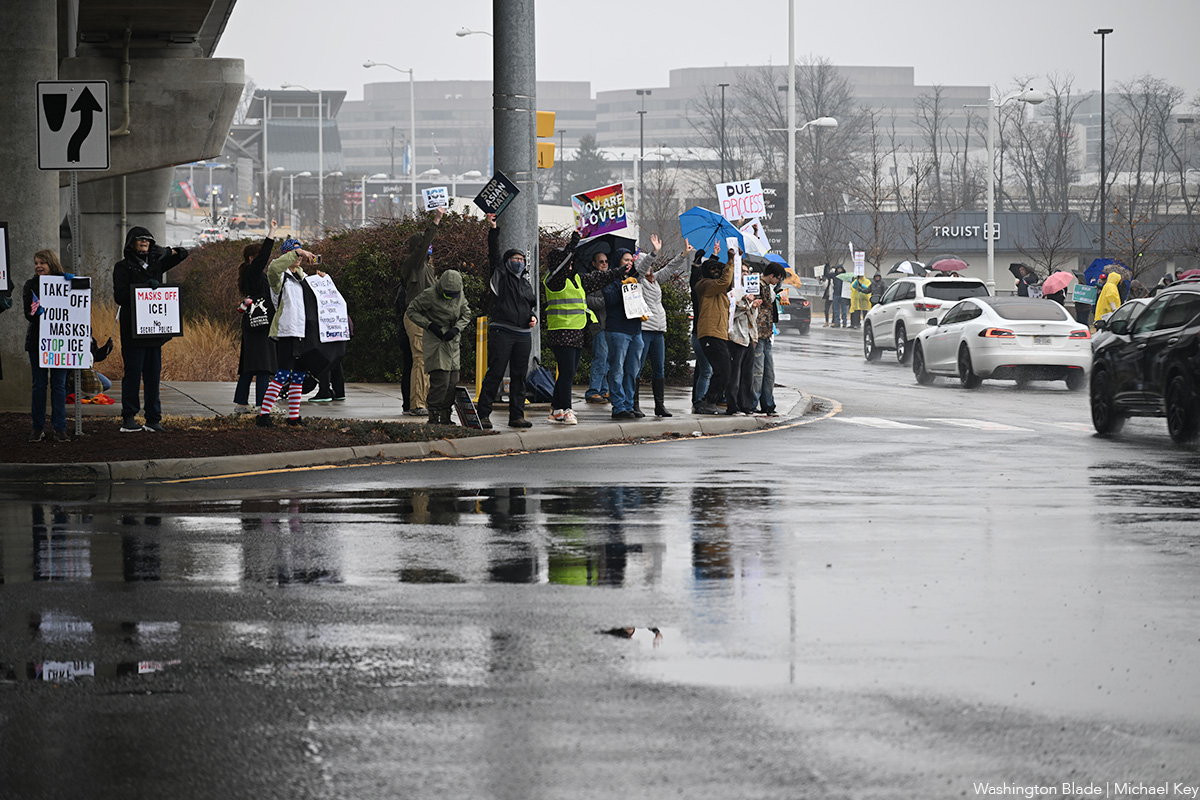
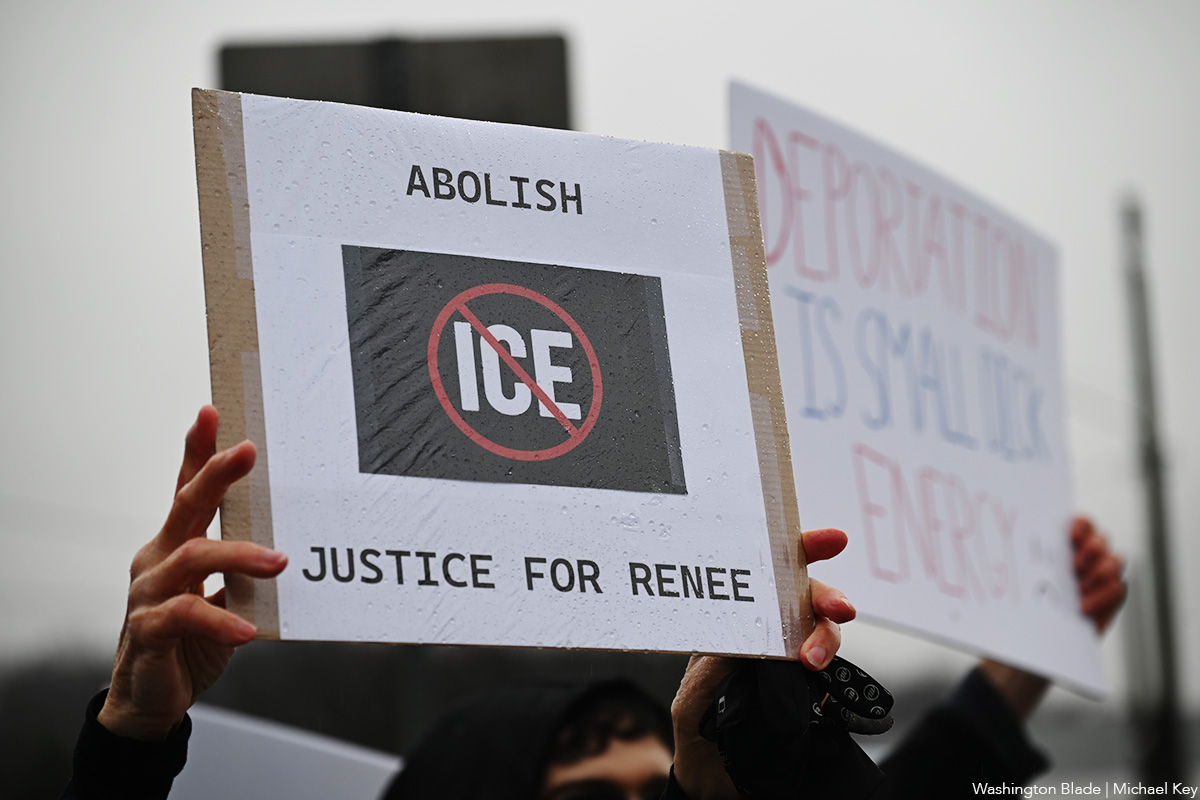
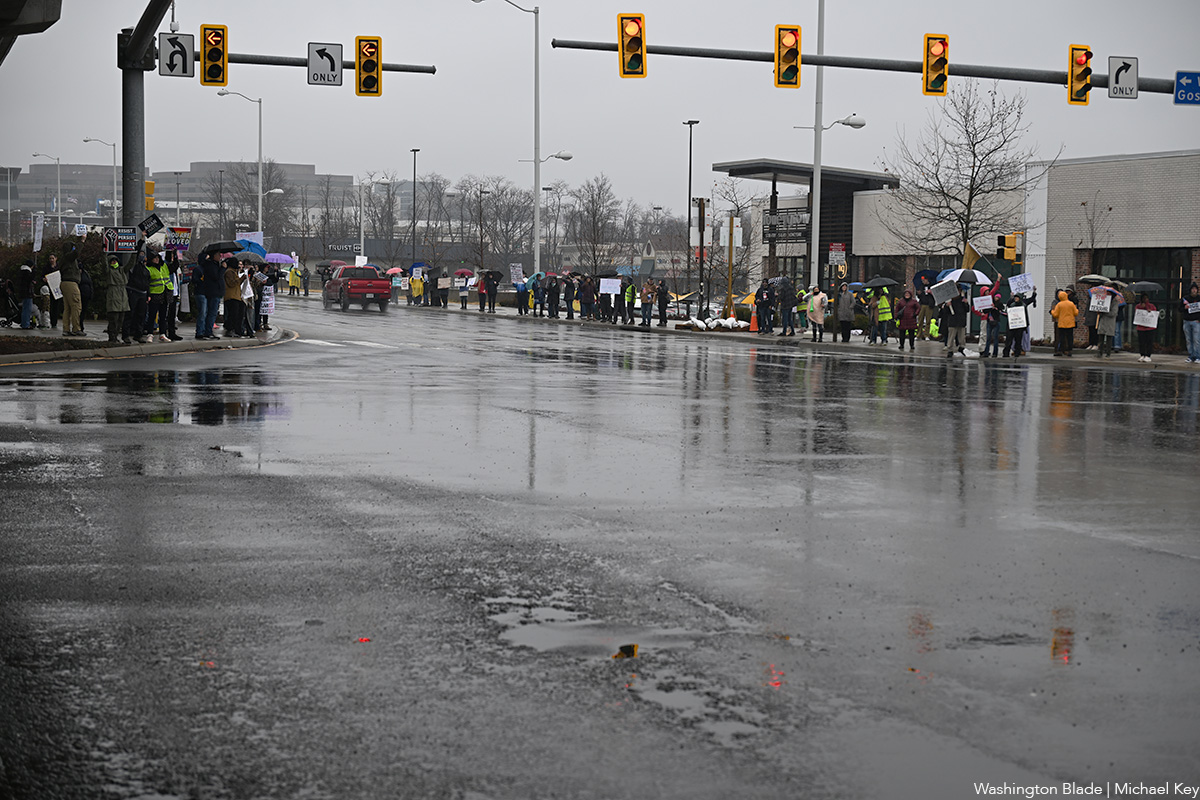
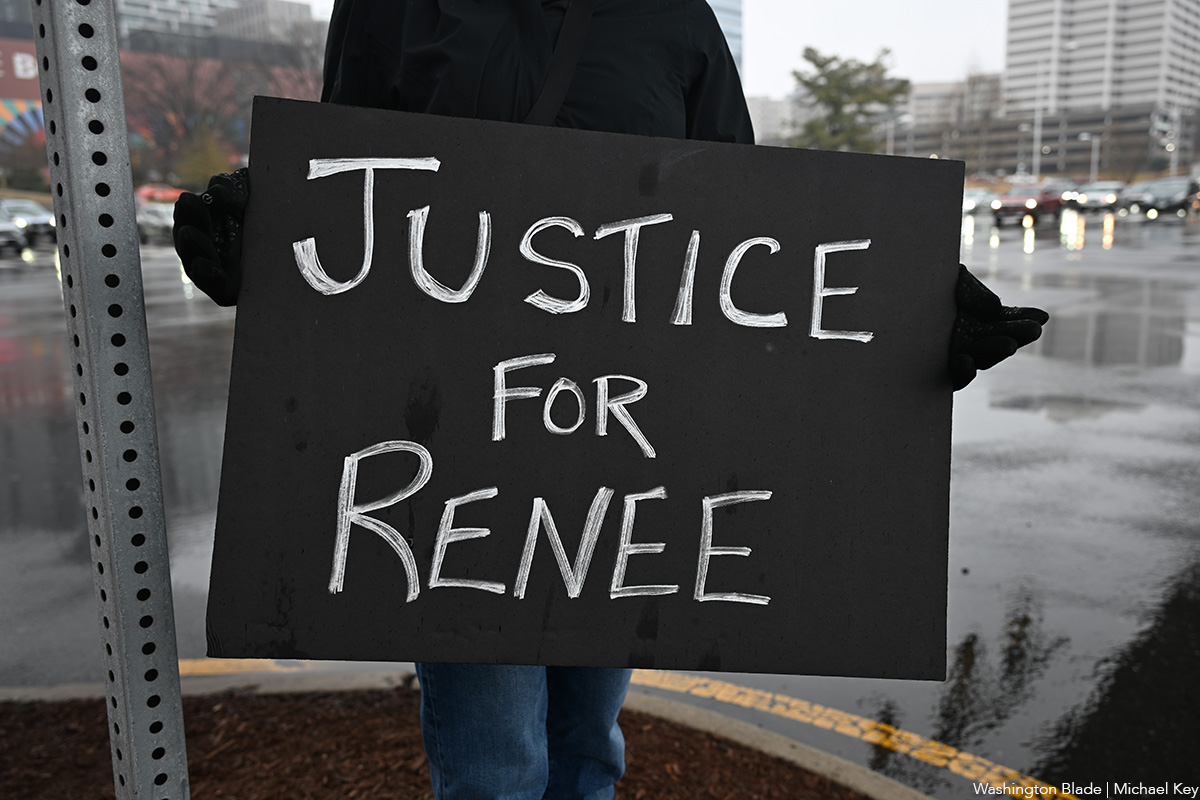

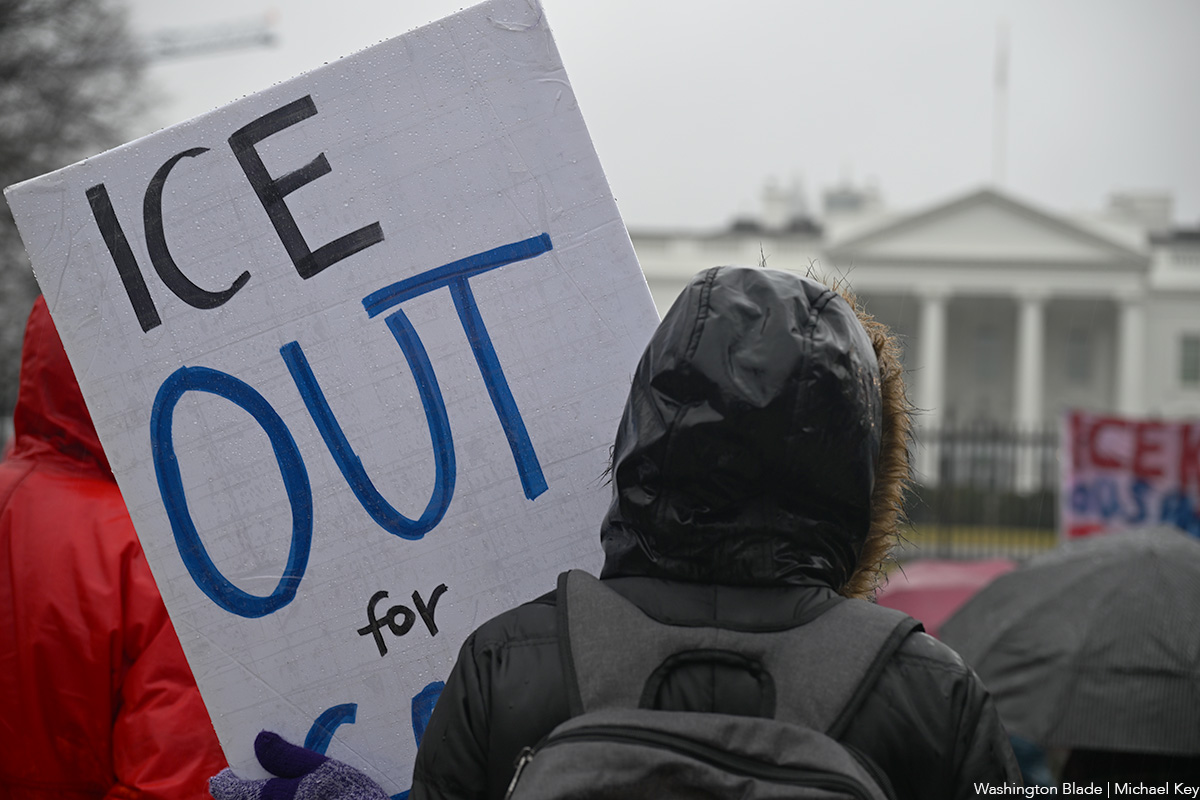
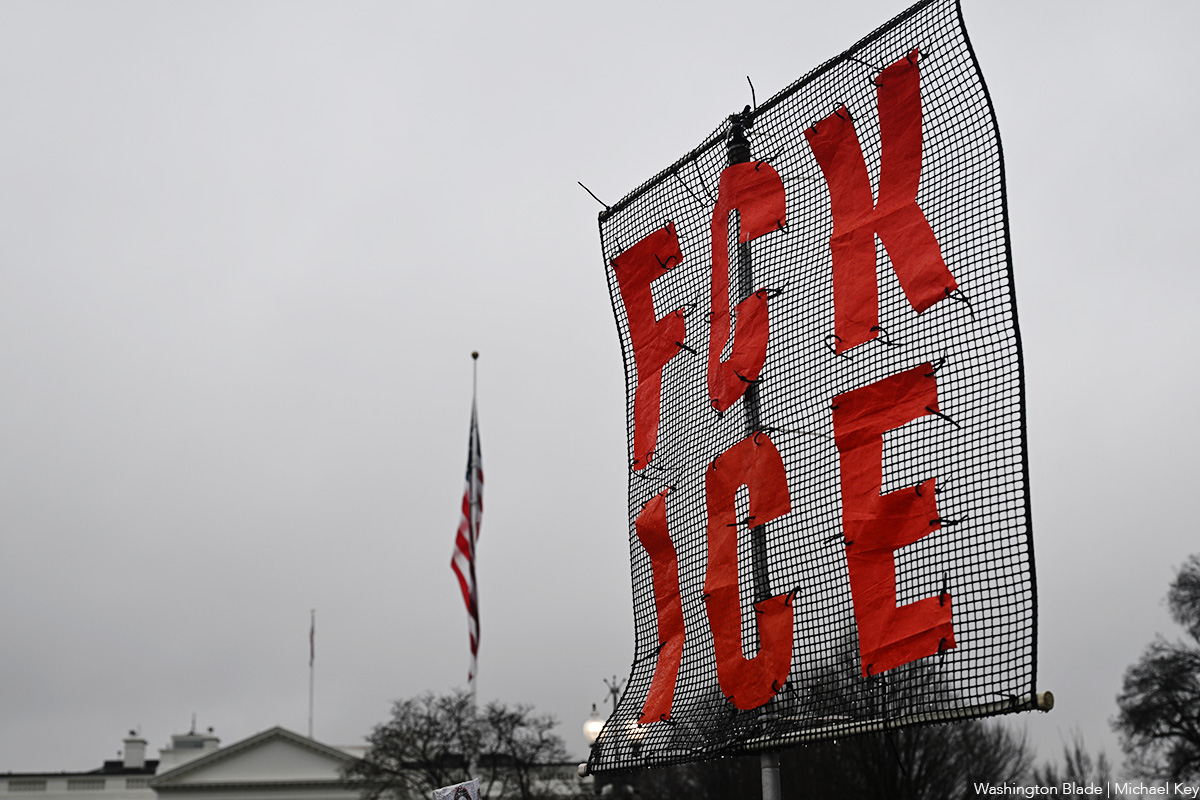
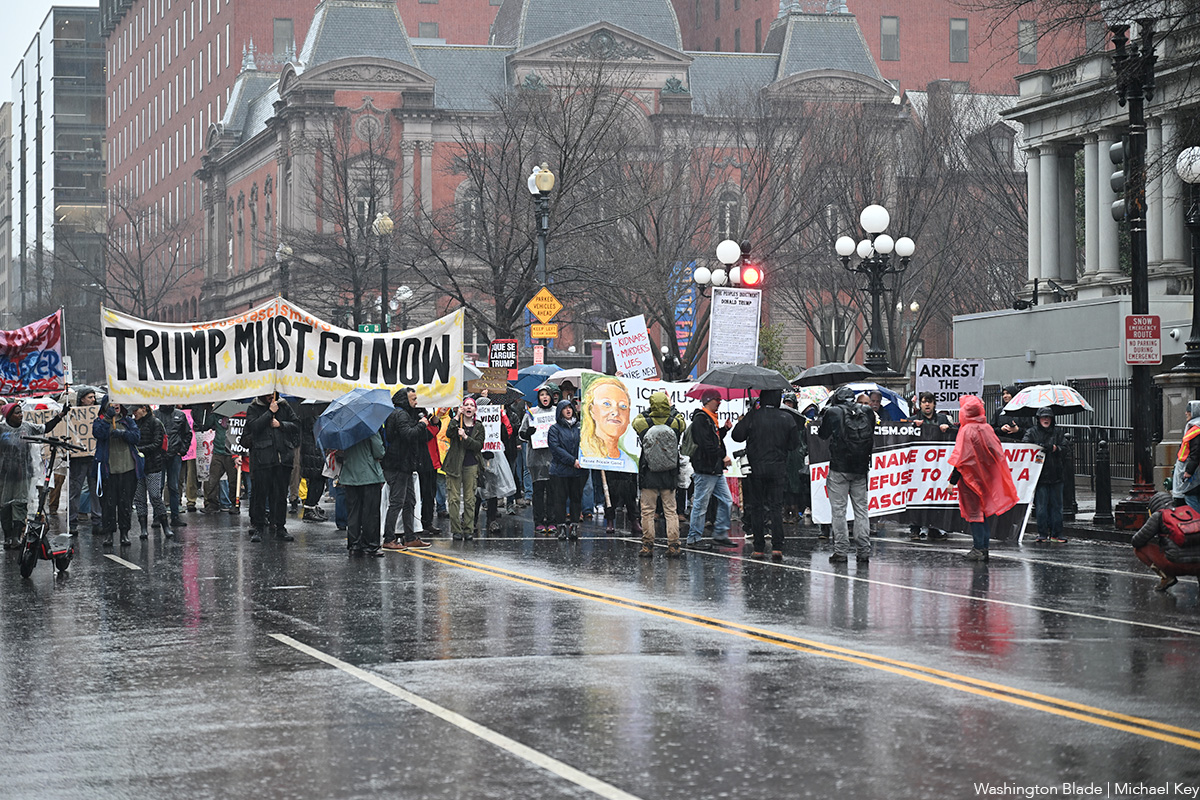

Books
Feminist fiction fans will love ‘Bog Queen’
A wonderful tale of druids, warriors, scheming kings, and a scientist
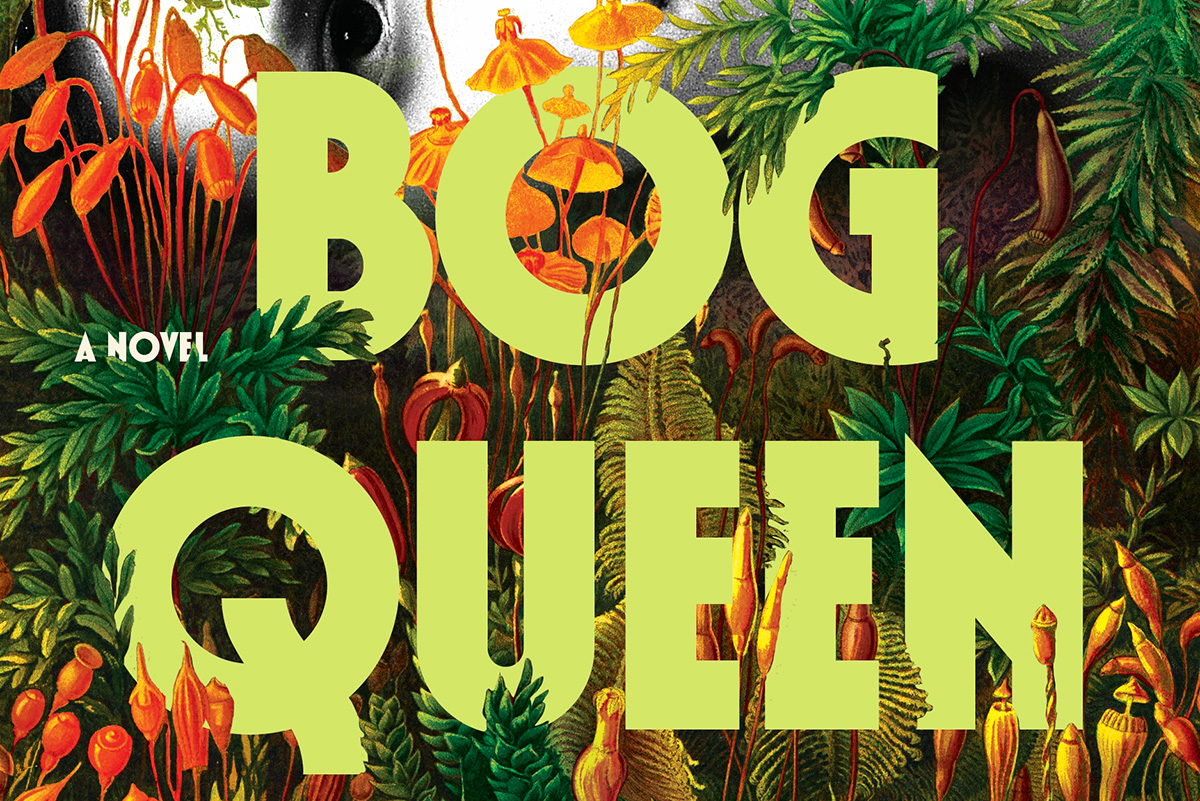
‘Bog Queen’
By Anna North
c.2025, Bloomsbury
$28.99/288 pages
Consider: lost and found.
The first one is miserable – whatever you need or want is gone, maybe for good. The second one can be joyful, a celebration of great relief and a reminder to look in the same spot next time you need that which you first lost. Loss hurts. But as in the new novel, “Bog Queen” by Anna North, discovery isn’t always without pain.

He’d always stuck to the story.
In 1961, or so he claimed, Isabel Navarro argued with her husband, as they had many times. At one point, she stalked out. Done. Gone, but there was always doubt – and now it seemed he’d been lying for decades: when peat cutters discovered the body of a young woman near his home in northwest England, Navarro finally admitted that he’d killed Isabel and dumped her corpse into a bog.
Officials prepared to charge him.
But again, that doubt. The body, as forensic anthropologist Agnes Lundstrom discovered rather quickly, was not that of Isabel. This bog woman had nearly healed wounds and her head showed old skull fractures. Her skin glowed yellow from decaying moss that her body had steeped in. No, the corpse in the bog was not from a half-century ago.
She was roughly 2,000 years old.
But who was the woman from the bog? Knowing more about her would’ve been a nice distraction for Agnes; she’d left America to move to England, left her father and a man she might have loved once, with the hope that her life could be different. She disliked solitude but she felt awkward around people, including the environmental activists, politicians, and others surrounding the discovery of the Iron Age corpse.
Was the woman beloved? Agnes could tell that she’d obviously been well cared-for, and relatively healthy despite the injuries she’d sustained. If there were any artifacts left in the bog, Agnes would have the answers she wanted. If only Isabel’s family, the activists, and authorities could come together and grant her more time.
Fortunately, that’s what you get inside “Bog Queen”: time, spanning from the Iron Age and the story of a young, inexperienced druid who’s hoping to forge ties with a southern kingdom; to 2018, the year in which the modern portion of this book is set.
Yes, you get both.
Yes, you’ll devour them.
Taking parts of a true story, author Anna North spins a wonderful tale of druids, vengeful warriors, scheming kings, and a scientist who’s as much of a genius as she is a nerd. The tale of the two women swings back and forth between chapters and eras, mixed with female strength and twenty-first century concerns. Even better, these perfectly mixed parts are occasionally joined by a third entity that adds a delicious note of darkness, as if whatever happens can be erased in a moment.
Nah, don’t even think about resisting.
If you’re a fan of feminist fiction, science, or novels featuring kings, druids, and Celtic history, don’t wait. “Bog Queen” is your book. Look. You’ll be glad you found it.
Movies
A Shakespearean tragedy comes to life in exquisite ‘Hamnet’
Chloe Zhao’s devastating movie a touchstone for the ages

For every person who adores Shakespeare, there are probably a dozen more who wonder why.
We get it; his plays and poems, composed in a past when the predominant worldview was built around beliefs and ideologies that now feel as antiquated as the blend of poetry and prose in which he wrote them, can easily feel tied to social mores that are in direct opposition to our own, often reflecting the classist, sexist, and racist patriarchal dogma that continues to plague our world today. Why, then, should we still be so enthralled with him?
The answer to that question might be more eloquently expressed by Chloe Zhao’s “Hamnet” – now in wide release and already a winner in this year’s barely begun awards season – than through any explanation we could offer.
Adapted from the novel by Maggie O’Farrell (who co-wrote the screenplay with Zhao), it focuses its narrative on the relationship between Will Shakespeare (Paul Mescal) and his wife Agnes Hathaway (Jessie Buckley), who meet when the future playwright – working to pay off a debt for his abusive father – is still just a tutor helping the children of well-to-do families learn Latin. Enamored from afar at first sight, he woos his way into her life, and, convincing both of their families to approve the match (after she becomes pregnant with their first child), becomes her husband. More children follow – including Hamnet (Jacobi Jupe), a “surprise” twin boy to their second daughter – but, recognizing Will’s passion for writing and his frustration at being unable to follow it, Agnes encourages him to travel to London in order to immerse himself in his ambitions.
As the years go by, Agnes – aided by her mother-in-law (Emily Watson) and guided by the nature-centric pagan wisdom of her own deceased mother – raises the children while her husband, miles away, builds a successful career as the city’s most popular playwright. But when an outbreak of bubonic plague results in the death of 11-year-old Hamnet in Will’s absence, an emotional wedge is driven between them – especially when Agnes receives word that her husband’s latest play, titled “Hamlet,” an interchangeable equivalent to the name of their dead son, is about to debut on the London stage.
There is nothing, save the bare details of circumstance around the Shakespeare family, that can be called factual about the narrative told in “Hamnet.” Records of Shakespeare’s private life are sparse and short on context, largely limited to civic notations of fact – birth, marriage, and death announcements, legal documents, and other general records – that leave plenty of space in which to speculate about the personal nuance such mundane details might imply. What is known is that the Shakespeares lost their son, probably to plague, and that “Hamlet” – a play dominated by expressions of grief and existential musings about life and death – was written over the course of the next five years. Shakespearean scholars have filled in the blanks, and it’s hard to argue with their assumptions about the influence young Hamnet’s tragic death likely had over the creation of his father’s masterwork. What human being would not be haunted by such an event, and how could any artist could avoid channeling its impact into their work, not just for a time but for forever after?
In their screenplay, O’Farrell and Zhao imagine an Agnes Shakespeare (most records refer to her as “Anne” but her father’s will uses the name “Agnes”) who stands apart from the conventions of her town, born of a “wild woman” in the woods and raised in ancient traditions of mysticism and nature magic before being adopted into her well-off family, who presents a worthy match and an intellectual equal for the brilliantly passionate creator responsible for some of Western Civilization’s most enduring tales. They imagine a courtship that would have defied the customs of the time and a relationship that feels almost modern, grounded in a love and mutual respect that’s a far cry from most popular notions of what a 16th-century marriage might look like. More than that, they imagine that the devastating loss of a child – even in a time when the mortality rate for children was high – might create a rift between two parents who can only process their grief alone. And despite the fact that almost none of what O’Farrell and Zhao present to us can be seen, at best, as anything other than informed speculation, it all feels devastatingly true.
That’s the quality that “Hamnet” shares with the ever-popular Will Shakespeare; though it takes us into a past that feels as alien to us as if it took place upon a different planet, it evokes a connection to the simple experience of being human, which cuts through the differences in context. Just as the kings, heroes, and fools of Shakespeare’s plays express and embody the same emotional experiences that shape our own mundane modern lives, the film’s portrayal of these two real-life people torn apart by personal tragedy speaks directly to our own shared sense of loss – and it does so with an eloquence that, like Shakespeare’s, emerges from the story to make it feel as palpable as if their grief was our own.
Yes, the writing and direction – each bringing a powerfully feminine “voice” to the story – are key to the emotional impact of “Hamnet,” but it’s the performances of its stars that carry it to us. Mescal, once more proving himself a master at embodying the kind of vulnerable masculine tenderness that’s capable of melting our hearts, gives us an accessible Shakespeare, driven perhaps by a spark of genius yet deeply grounded in the tangible humanity that underscores the “everyman” sensibility that informs the man’s plays. But it’s Buckley’s movie, by a wide margin, and her bold, fierce, and deeply affecting performance gives voice to a powerful grief, a cry against the injustice and cruelty of what we fumblingly call “fate” that resonates deep within us and carries our own grief, over losses we’ve had and losses we know are yet to come, along with her on the journey to catharsis.
That’s the word – “catharsis” – that defines why Shakespeare (and by extension, “Hamnet”) still holds such power over the imagination of our human race all these centuries later. The circumstantial details of his stories, wrapped up in ancient ideologies that still haunt our cultural imagination, fall away in the face of the raw expression of humanity to which his characters give voice. When Hamlet asks “to be or not to be?,” he is not an old-world Danish Prince contemplating revenge against a traitor who murdered his father; he is Shakespeare himself, pondering the essential mystery of life and death, and he is us, too.
Likewise, the Agnes Shakespeare of “Hamnet” (masterfully enacted by Buckley) embodies all our own sorrows – past and future, real and imagined – and connects them to the well of human emotion from which we all must drink; it’s more powerful than we expect, and more cleansing than we imagine, and it makes Zhao’s exquisitely devastating movie into a touchstone for the ages.
We can’t presume to speak for Shakespeare, but we are pretty sure he would be pleased.
-

 National5 days ago
National5 days agoWhat to watch for in 2026: midterms, Supreme Court, and more
-

 Opinions5 days ago
Opinions5 days agoA reminder that Jan. 6 was ‘textbook terrorism’
-

 Colombia5 days ago
Colombia5 days agoClaudia López criticizes Trump over threats against Colombian president
-

 District of Columbia4 days ago
District of Columbia4 days agoImperial Court of Washington drag group has ‘dissolved’

